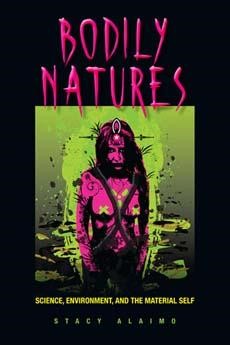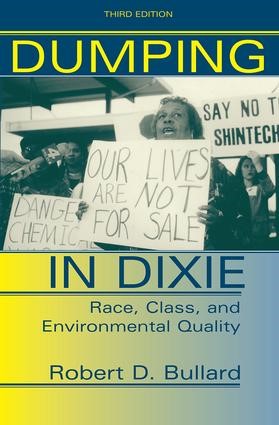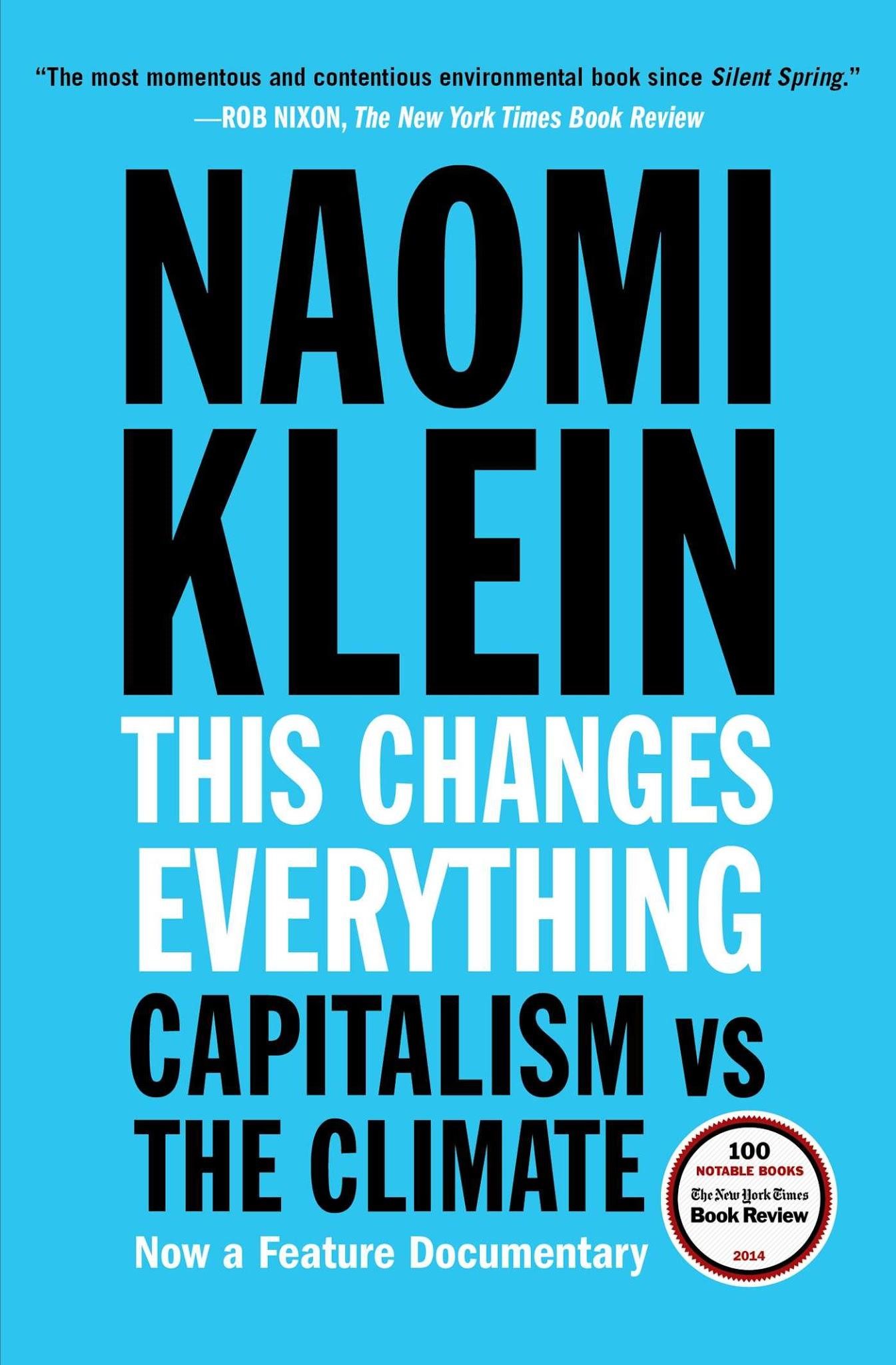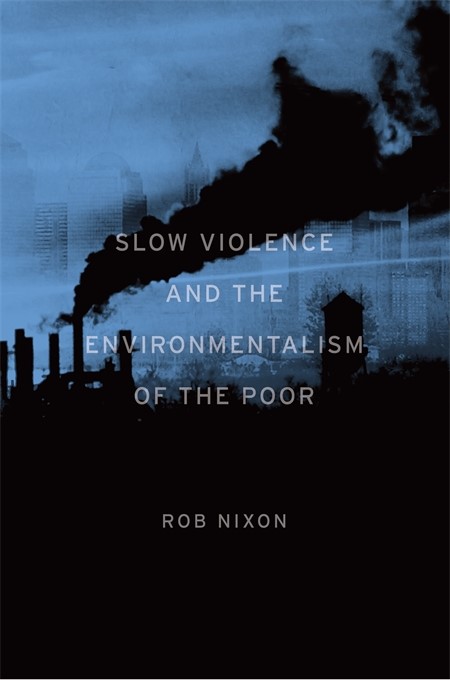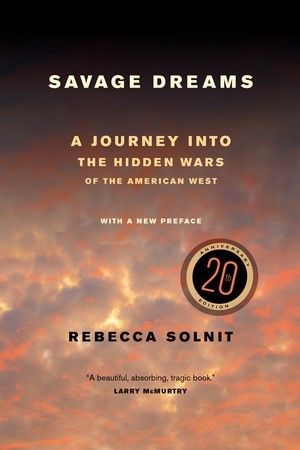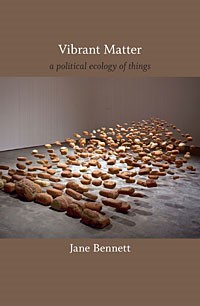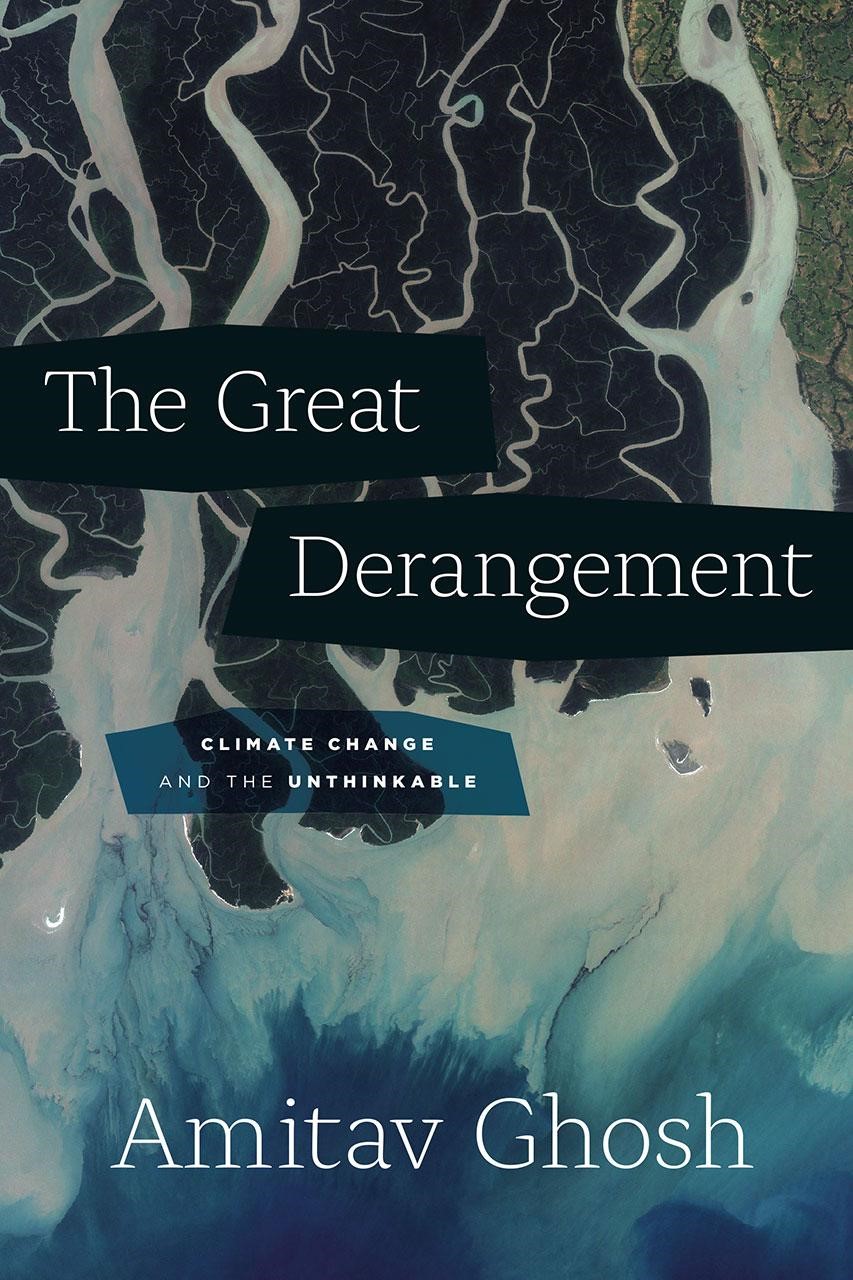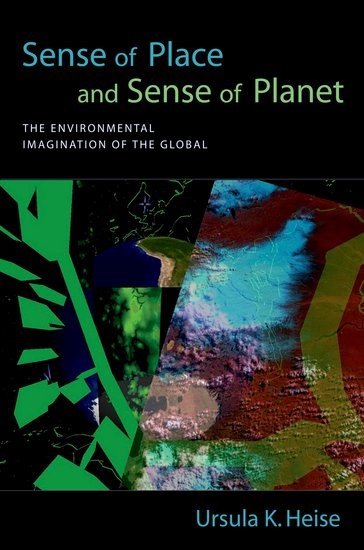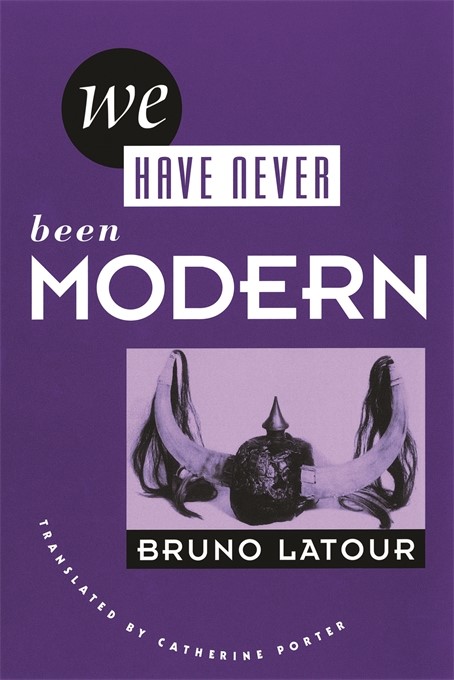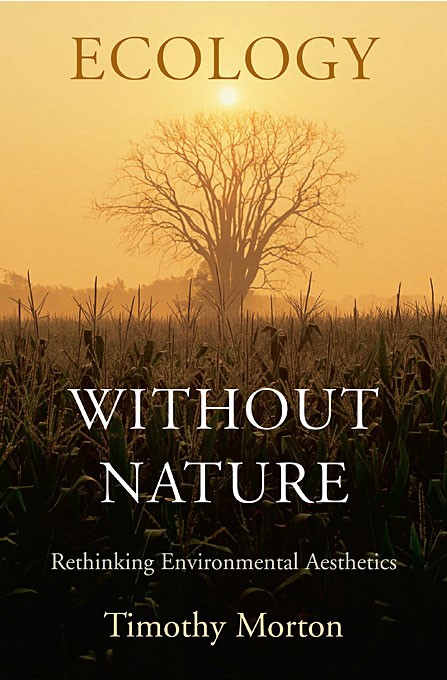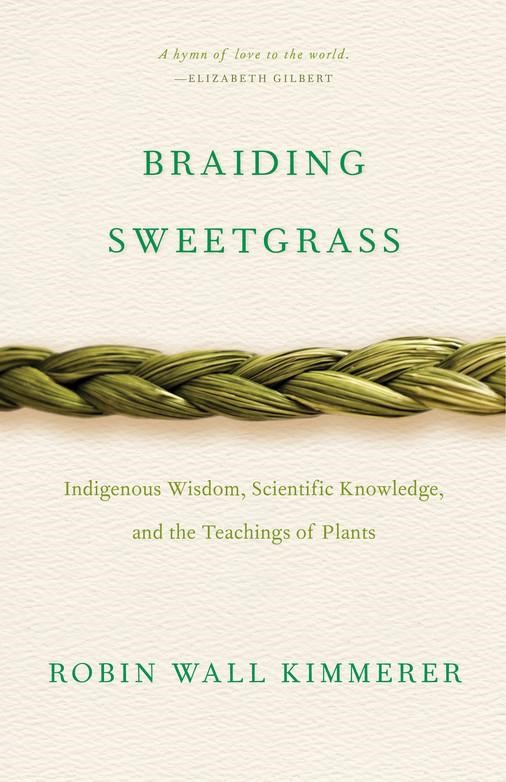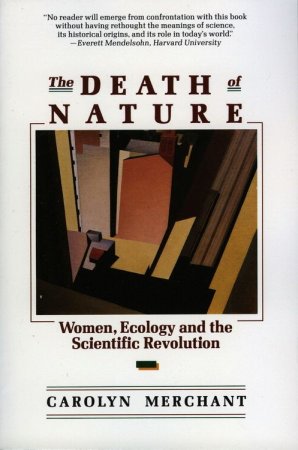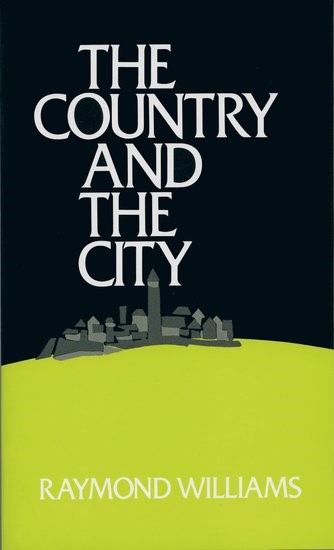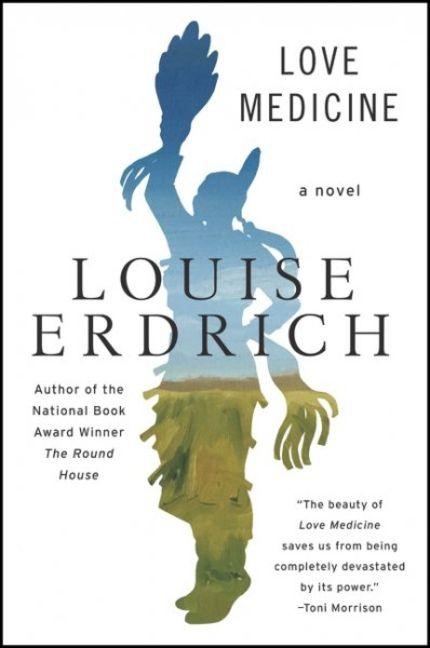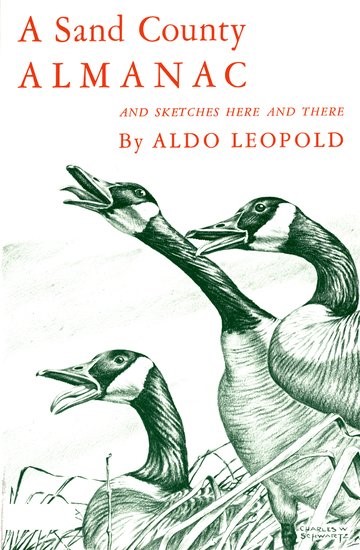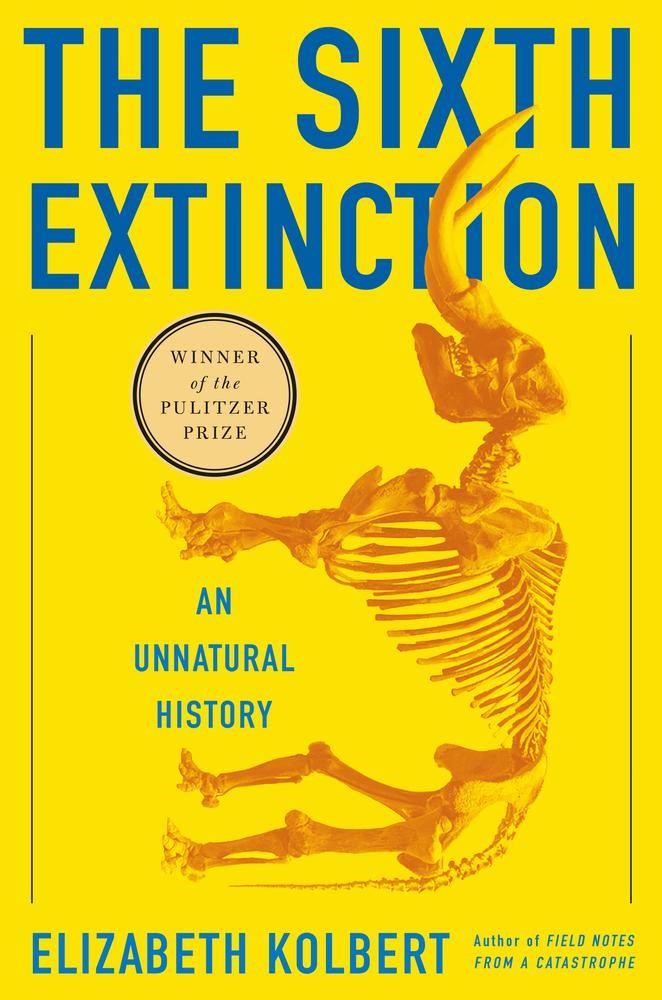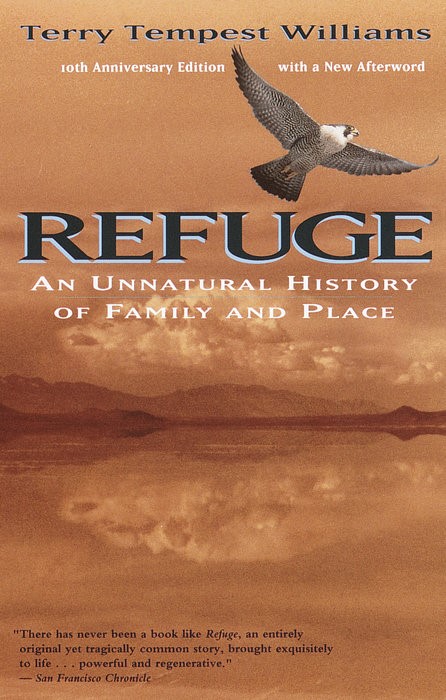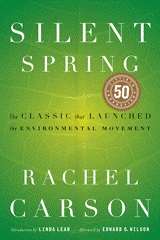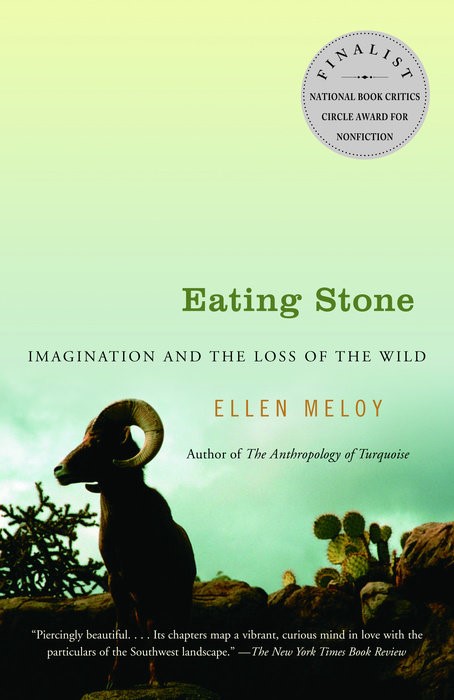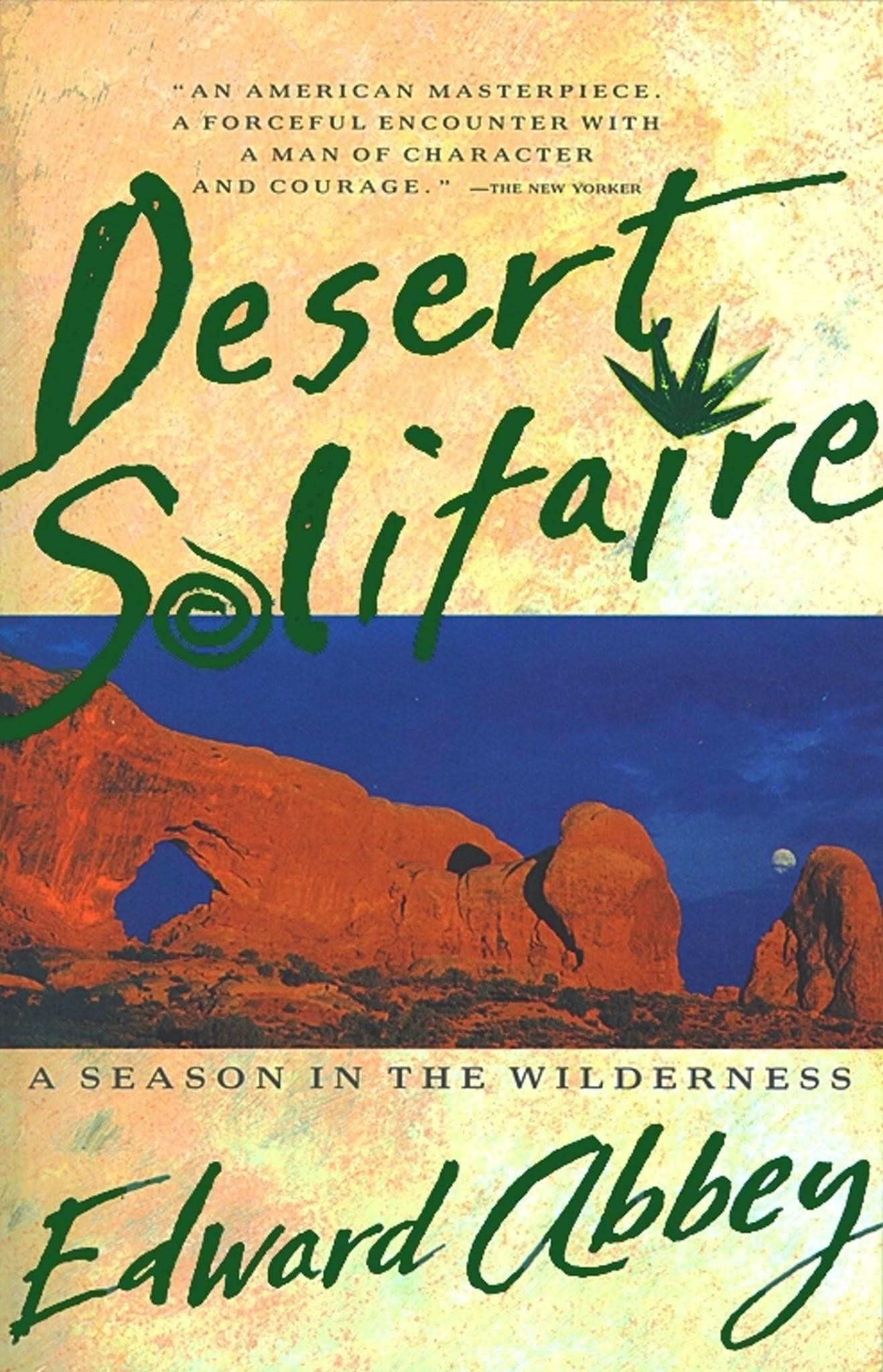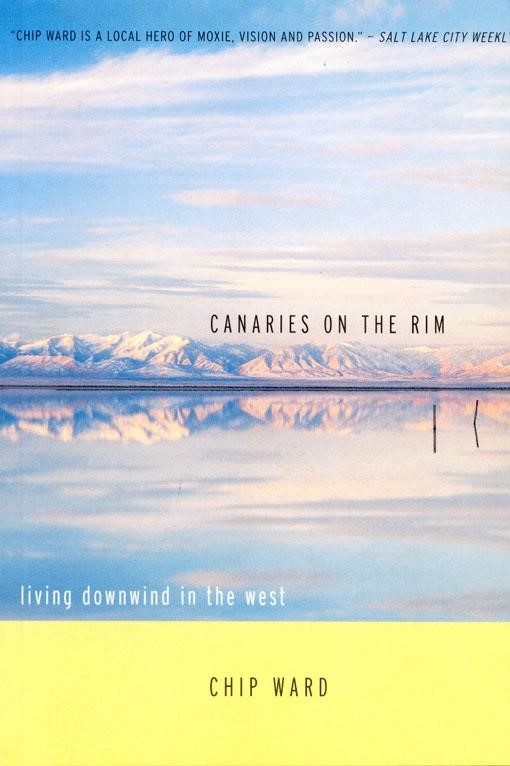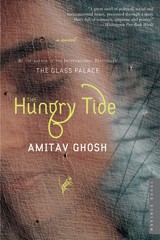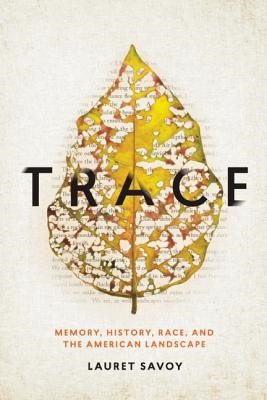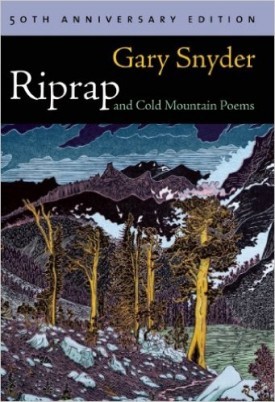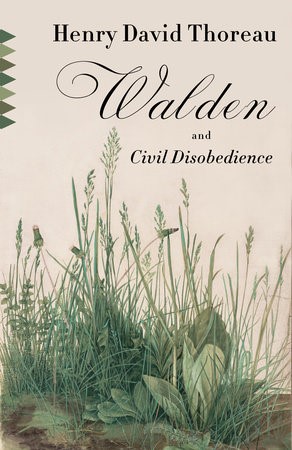A Dozen Books We Study
The University of Utah’s Environmental Humanities Program brings together a diverse array of intellectual perspectives and methodologies. Students examine environmental issues through a variety of historical and theoretical frameworks, taking into consideration how environmental concerns intersect with race, gender, class, politics, and geography.
This list is not a canon, nor is it a comprehensive picture of the Environmental Humanities.
Rather, it is meant to give a sense of the kinds of questions we ask; it is a starting
place for thinking about the environment through humanistic frameworks. Find these
title in our reading room.
A Dozen Creative, Crossover, and Classic Books
In addition to academic literature, the University of Utah’s Environmental Humanities Program emphasizes broad exposure to different kinds of environmental writing. Students read classics alongside contemporary works of creative nonfiction, journalism, fiction, and poetry. Through studying titles such as those listed here, our program encourages students to think broadly about how we conceive of and represent the world around us, and what different modes of writing can achieve.
Bodily Natures: Science, Environment, and the Material Self
“How do we understand the agency and significance of material forces and their interface with human bodies? What does it mean to be human in these times, with bodies that are inextricably interconnected with our physical world? Bodily Natures considers these questions by grappling with powerful and pervasive material forces and their increasingly harmful effects on the human body. Drawing on feminist theory, environmental studies, and the sciences, Stacy Alaimo focuses on trans-corporeality, or movement across bodies and nature, which has profoundly altered our sense of self. By looking at a broad range of creative and philosophical writings, Alaimo illuminates how science, politics, and culture collide, while considering the closeness of the human body to the environment.”
Indiana University Press
2010
Dumping In Dixie: Race, Class, And Environmental Quality
“To be poor, working-class, or a person of color in the United States often means bearing a disproportionate share of the country's environmental problems. Starting with the premise that all Americans have a basic right to live in a healthy environment, Dumping in Dixie chronicles the efforts of five African American communities, empowered by the civil rights movement, to link environmentalism with issues of social justice. In the third edition, Bullard speaks to us from the front lines of the environmental justice movement about new developments in environmental racism, different organizing strategies, and success stories in the struggle for environmental equity.”
Routledge
2000
This Changes Everything: Capitalism vs. The Climate
“In This Changes Everything Naomi Klein argues that climate change isn’t just another issue to be neatly filed between taxes and health care. It’s an alarm that calls us to fix an economic system that is already failing us in many ways. Klein meticulously builds the case for how massively reducing our greenhouse emissions is our best chance to simultaneously reduce gaping inequalities, re-imagine our broken democracies, and rebuild our gutted local economies. She exposes the ideological desperation of the climate-change deniers, the messianic delusions of the would-be geoengineers, and the tragic defeatism of too many mainstream green initiatives. And she demonstrates precisely why the market has not—and cannot—fix the climate crisis but will instead make things worse, with ever more extreme and ecologically damaging extraction methods, accompanied by rampant disaster capitalism.”
Simon & Schuster
2015
Slow Violence and the Environmentalism of the Poor
“The violence wrought by climate change, toxic drift, deforestation, oil spills, and the environmental aftermath of war takes place gradually and often invisibly. Using the innovative concept of ‘slow violence’ to describe these threats, Rob Nixon focuses on the inattention we have paid to the attritional lethality of many environmental crises, in contrast with the sensational, spectacle-driven messaging that impels public activism today. Slow violence, because it is so readily ignored by a hard-charging capitalism, exacerbates the vulnerability of ecosystems and of people who are poor, disempowered, and often involuntarily displaced, while fueling social conflicts that arise from desperation as life-sustaining conditions erode.”
Harvard University Press
2013
Savage Dreams: A Journey into the Hidden Wars of the American West
“In this foundational book of landscape theory and environmental thinking, Rebecca Solnit explores our national Eden and Armageddon and offers a pathbreaking history of the west, focusing on the relationship between culture and its implementation as politics. In a new preface, she considers the continuities and changes of these invisible wars in the context of our current climate change crisis, and reveals how the long arm of these histories continue to inspire her writing and hope.”
In 2019, the program awarded Rebecca Solnit the second Utah Award in the Environmental Humanities
University of California Press
2014
Vibrant Matter: A Political Ecology of Things
“In Vibrant Matter the political theorist Jane Bennett, renowned for her work on nature, ethics, and affect, shifts her focus from the human experience of things to things themselves. Bennett argues that political theory needs to do a better job of recognizing the active participation of nonhuman forces in events. Toward that end, she theorizes a ‘vital materiality’ that runs through and across bodies, both human and nonhuman. Bennett explores how political analyses of public events might change were we to acknowledge that agency always emerges as the effect of ad hoc configurations of human and nonhuman forces. She suggests that recognizing that agency is distributed this way, and is not solely the province of humans, might spur the cultivation of a more responsible, ecologically sound politics: a politics less devoted to blaming and condemning individuals than to discerning the web of forces affecting situations and events.”
Duke University Press
2010
The Great Derangement: Climate Change and the Unthinkable
“The extreme nature of today’s climate events, Ghosh asserts, make them peculiarly resistant to contemporary modes of thinking and imagining. This is particularly true of serious literary fiction: hundred-year storms and freakish tornadoes simply feel too improbable for the novel; they are automatically consigned to other genres. In the writing of history, too, the climate crisis has sometimes led to gross simplifications; Ghosh shows that the history of the carbon economy is a tangled global story with many contradictory and counterintuitive elements.
Ghosh ends by suggesting that politics, much like literature, has become a matter of personal moral reckoning rather than an arena of collective action. But to limit fiction and politics to individual moral adventure comes at a great cost. The climate crisis asks us to imagine other forms of human existence—a task to which fiction, Ghosh argues, is the best suited of all cultural forms. His book serves as a great writer’s summons to confront the most urgent task of our time.”
In 2018, the program awarded Amitav Ghosh the inaugural Utah Award in the Environmental Humanities
University of Chicago Press
2016
Sense of Place and Sense of Planet: The Environmental Imagination of the Global
“Sense of Place and Sense of Planet analyzes the relationship between the imagination of the global and the ethical commitment to the local in environmentalist thought and writing from the 1960s to the present. [The book] critically examines the emphasis on local identities and communities in North American environmentalism by establishing conceptual connections between environmentalism and ecocriticism, on one hand, and theories of globalization, transnationalism and cosmopolitanism, on the other. It proposes the concept of ‘eco-cosmopolitanism’ as a shorthand for envisioning these connections and the cultural and aesthetic forms into which they translate. [The book also] focuses on conceptualizations of environmental danger and connects environmentalist and ecocritical thought with the interdisciplinary field of risk theory in the social sciences, arguing that environmental justice theory and ecocriticism stand to benefit from closer consideration of the theories of cosmopolitanism that have arisen in this field from the analysis of transnational communities at risk.”
Oxford University Press
2008
We Have Never Been Modern
“With the rise of science, we moderns believe, the world changed irrevocably, separating us forever from our primitive, premodern ancestors. But if we were to let go of this fond conviction, Bruno Latour asks, what would the world look like? His book, an anthropology of science, shows us how much of modernity is actually a matter of faith. …. Nothing short of a reworking of our mental landscape, We Have Never Been Modern blurs the boundaries among science, the humanities, and the social sciences to enhance understanding on all sides. A summation of the work of one of the most influential and provocative interpreters of science, it aims at saving what is good and valuable in modernity and replacing the rest with a broader, fairer, and finer sense of possibility.”
Harvard University Press
1993
Ecology without Nature: Rethinking Environmental Aesthetics
“Ecology without Nature investigates our ecological assumptions in a way that is provocative and deeply engaging. Ranging widely in eighteenth-century through contemporary philosophy, culture, and history, he explores the value of art in imagining environmental projects for the future. Morton develops a fresh vocabulary for reading ‘environmentality’ in artistic form as well as content, and traces the contexts of ecological constructs through the history of capitalism. From John Clare to John Cage, from Kierkegaard to Kristeva, from The Lord of the Rings to electronic life forms, Ecology without Nature widens our view of ecological criticism, and deepens our understanding of ecology itself. Instead of trying to use an idea of nature to heal what society has damaged, Morton sets out a radical new form of ecological criticism: ‘dark ecology.’”
Harvard University Press
2009
Braiding Sweetgrass: Indigenous Wisdom, Scientific Knowledge and the Teachings of Plants
“Drawing on her life as an indigenous scientist, a mother, and a woman, Kimmerer shows how other living beings—asters and goldenrod, strawberries and squash, salamanders, algae, and sweetgrass—offer us gifts and lessons, even if we’ve forgotten how to hear their voices. In a rich braid of reflections that range from the creation of Turtle Island to the forces that threaten its flourishing today, she circles toward a central argument: that the awakening of a wider ecological consciousness requires the acknowledgment and celebration of our reciprocal relationship with the rest of the living world. For only when we can hear the languages of other beings will we be capable of understanding the generosity of the earth, and learn to give our own gifts in return.”
Milkweed Books
2014
The Death of Nature: Women, Ecology, and the Scientific Revolution
The Country and The City
“As a brilliant survey of English literature in terms of changing attitudes towards country and city, Williams' highly-acclaimed study reveals the shifting images and associations between these two traditional poles of life throughout the major developmental periods of English culture.”
Oxford University Press
1975
Love Medicine: A Novel
“Set on and around a North Dakota Ojibwe reservation, Love Medicine—the first novel by bestselling, National Book Award-winning author Louise Erdrich—is the epic story about the intertwined fates of two families: the Kashpaws and the Lamartines. With astonishing virtuosity, each chapter draws on a range of voices to limn its tales. Black humor mingles with magic, injustice bleeds into betrayal, and through it all, bonds of love and family marry the elements into a tightly woven whole that pulses with the drama of life. Filled with humor, magic, injustice and betrayal, Erdrich blends family love and loyalty in a stunning work of dramatic fiction.”
Winner of the National Book Critics Circle Award
HarperCollins
1984
A Sand County Almanac
“First published in 1949 and praised in The New York Times Book Review as ‘a trenchant book, full of vigor and bite,’ A Sand County Almanac combines some of the finest nature writing since Thoreau with an outspoken and highly ethical regard for America’s relationship to the land. Written with an unparalleled understanding of the ways of nature, the book includes a section on the monthly changes of the Wisconsin countryside; another part that gathers informal pieces written by Leopold over a forty-year period as he traveled through the woodlands of Wisconsin, Iowa, Arizona, Sonora, Oregon, Manitoba, and elsewhere; and a final section in which Leopold addresses the philosophical issues involved in wildlife conservation. As the forerunner of such important books as Annie Dillard's Pilgrim at Tinker Creek, Edward Abbey's Desert Solitaire, and Robert Finch's The Primal Place, this classic work remains as relevant today as it was forty years ago.”
1949
The Sixth Extinction: An Unnatural History
“Over the last half a billion years, there have been five mass extinctions, when the diversity of life on earth suddenly and dramatically contracted. Scientists around the world are currently monitoring the sixth extinction, predicted to be the most devastating extinction event since the asteroid impact that wiped out the dinosaurs. This time around, the cataclysm is us. In The Sixth Extinction, two-time winner of the National Magazine Award and New Yorker writer Elizabeth Kolbert draws on the work of scores of researchers in half a dozen disciplines, accompanying many of them into the field: geologists who study deep ocean cores, botanists who follow the tree line as it climbs up the Andes, marine biologists who dive off the Great Barrier Reef. She introduces us to a dozen species, some already gone, others facing extinction, including the Panamanian golden frog, staghorn coral, the great auk, and the Sumatran rhino. Through these stories, Kolbert provides a moving account of the disappearances occurring all around us and traces the evolution of extinction as concept, from its first articulation by Georges Cuvier in revolutionary Paris up through the present day. The sixth extinction is likely to be mankind's most lasting legacy; as Kolbert observes, it compels us to rethink the fundamental question of what it means to be human.”
Winner of the Pulitzer Prize
Macmillan
2014
Refuge: An Unnatural History of Family and Place
“In the spring of 1983 Terry Tempest Williams learned that her mother was dying of cancer. That same season, The Great Salt Lake began to rise to record heights, threatening the Bear River Migratory Bird Refuge and the herons, owls, and snowy egrets that Williams, a poet and naturalist, had come to gauge her life by. One event was nature at its most random, the other a by-product of rogue technology: Terry’s mother, and Terry herself, had been exposed to the fallout of atomic bomb tests in the 1950s. As it interweaves these narratives of dying and accommodation, Refuge transforms tragedy into a document of renewal and spiritual grace, resulting in a work that has become a classic.”
Penguin Random House
1991
Silent Spring
“Silent Spring alerted a large audience to the environmental and human dangers of indiscriminate use of pesticides, spurring revolutionary changes in the laws affecting our air, land, and water. ‘Silent Spring became a runaway bestseller, with international reverberations . . . [It is] well crafted, fearless and succinct . . . Even if she had not inspired a generation of activists, Carson would prevail as one of the greatest nature writers in American letters’ (Peter Matthiessen, for Time’s 100 Most Influential People of the Century).”
Nominated for a National Book Award
Houghton Mifflin Harcourt
1962
Eating Stone: Imagination and the Loss of the Wild
“Long believed to be disappearing and possibly even extinct, the Southwestern bighorn sheep of Utah’s canyonlands have made a surprising comeback. Naturalist Ellen Meloy tracks a band of these majestic creatures through backcountry hikes, downriver floats, and travels across the Southwest. Alone in the wilderness, Meloy chronicles her communion with the bighorns and laments the growing severance of man from nature, a severance that she feels has left us spiritually hungry. Wry, quirky and perceptive, Eating Stone is a brilliant and wholly original tribute to the natural world.”
Finalist, National Book Critics Circle Award
Penguin Random House
2006
Desert Solitaire: A Season in the Wilderness
“Hailed by The New York Times as ‘a passionately felt, deeply poetic book,’ the moving autobiographical work of Edward Abbey, considered the Thoreau of the American West, and his passion for the southwestern wilderness. Desert Solitaire is a collection of vignettes about life in the wilderness and the nature of the desert itself by park ranger and conservationist, Edward Abbey. The book details the unique adventures and conflicts the author faces, from dealing with the damage caused by development of the land or excessive tourism, to discovering a dead body. However Desert Solitaire is not just a collection of one man’s stories, the book is also a philosophical memoir, full of Abbey’s reflections on the desert as a paradox, at once beautiful and liberating, but also isolating and cruel. Often compared to Thoreau’s Walden, Desert Solitaire is a powerful discussion of life’s mysteries set against the stirring backdrop of the American southwestern wilderness.”
Touchstone
1968
Canaries on the Rim: Living Downwind in the West
“In the late 1970s Chip Ward and his wife left the Sleeping Rainbow Ranch in Capitol Reef National Park to raise their children in the classic small-town American setting of Grantsville, Utah. There, on the edge of the Great Basin Desert, disturbing tales of local sickness and death interrupted an idyllic life. A seven-year quest to understand a hidden history of ecocide followed. Canaries on the Rim is Ward's firsthand account of that quest and how lessons learned in the wilderness were later applied to building opposition to toxic waste disposal, chemical weapons incineration, industrial pollution, and nuclear waste storage. The secret holocaust that is unfolding along the toxic shadow of America's Great Basin Desert is grim, but Ward's colorful and often-humorous story is not. Canaries on the Rim is a warning and a call to arms, but it is also a compelling drama and a lively primer on environmental activism. If civil action took place in Edward Abbey's West, this is the book that would result.”
Verso
1999
The Hungry Tide: A Novel
“The Hungry Tide is a very contemporary story of adventure and unlikely love, identity and history, set in one of the most fascinating regions on the earth. Off the easternmost coast of India, in the Bay of Bengal, lies the immense labyrinth of tiny islands known as the Sundarbans. For settlers here, life is extremely precarious. Attacks by deadly tigers are common. Unrest and eviction are constant threats. Without warning, at any time, tidal floods rise and surge over the land, leaving devastation in their wake.
“In this place of vengeful beauty, the lives of three people from different worlds collide. Piya Roy is a young marine biologist, of Indian descent but stubbornly American, in search of a rare, endangered river dolphin. Her journey begins with a disaster, when she is thrown from a boat into crocodile-infested waters. Rescue comes in the form of a young, illiterate fisherman, Fokir. Although they have no language between them, Piya and Fokir are powerfully drawn to each other, sharing an uncanny instinct for the ways of the sea. Piya engages Fokir to help with her research and finds a translator in Kanai Dutt, a businessman from Delhi whose idealistic aunt and uncle are longtime settlers in the Sundarbans. As the three of them launch into the elaborate backwaters, they are drawn unawares into the hidden undercurrents of this isolated world, where political turmoil exacts a personal toll that is every bit as powerful as the ravaging tide.”
In 2018, University of Utah’s Environmental Humanities Program awarded Amitav Ghosh the inaugural Utah Award in the Environmental Humanities
Houghton Mifflin Harcourt
2006
Trace: Memory, History, Race, and the American Landscape
“Sand and stone are Earth’s fragmented memory. Each of us, too, is a landscape inscribed by memory and loss. One life-defining lesson Lauret Savoy learned as a young girl was this: the American land did not hate. As an educator and Earth historian, she has tracked the continent’s past from the relics of deep time; but the paths of ancestors toward her—paths of free and enslaved Africans, colonists from Europe, and peoples indigenous to this land—lie largely eroded and lost. In this provocative and powerful mosaic of personal journeys and historical inquiry across a continent and time, Savoy explores how the country’s still unfolding history, and ideas of “race,” have marked her and the land. From twisted terrain within the San Andreas Fault zone to a South Carolina plantation, from national parks to burial grounds, from “Indian Territory” and the U.S.-Mexico Border to the U.S. capital, Trace grapples with a searing national history to reveal the often unvoiced presence of the past. In distinctive and illuminating prose that is attentive to the rhythms of language and landscapes, she weaves together human stories of migration, silence, and displacement, as epic as the continent they survey, with uplifted mountains, braided streams, and eroded canyons.”
Winner of the American Book Award from the Before Columbus Foundation
Finalist for the PEN American Open Book Award
Counterpoint Press
2016
Riprap and Cold Mountain Poems
“By any measure, Gary Snyder is one of the greatest poets in America in the last century. From his first book of poems to his latest collection of essays, his work and his example, standing between Tu Fu and Thoreau, have been influential all over the world. Riprap, his first book of poems, was published in Japan in 1959 by Origin Press, and it is the fiftieth anniversary of that groundbreaking book we celebrate with this edition. A small press reprint of that book included Snyder’s translations of Han Shan’s Cold Mountain Poems, perhaps the finest translations of that remarkable poet ever made into English.”
Counterpoint Press (50th Anniversary Edition)
1958; reissued 2018
Walden; or, Life in the Woods
“Henry David Thoreau’s account of his adventure in self-reliance on the shores of a pond in Massachusetts—part social experiment, part spiritual quest—is an enduringly influential American classic. In 1845, Thoreau began building a cabin at Walden Pond near Concord, Massachusetts. The inspiring and lyrical book that resulted is both a record of the two years Thoreau spent in withdrawal from society and a declaration of personal independence. By virtue of its casual, offhandedly brilliant wisdom and the easy splendor of its nature writing, Thoreau’s account of his immersion in solitude has become a signpost for the modern mind in an increasingly bewildering world.”


